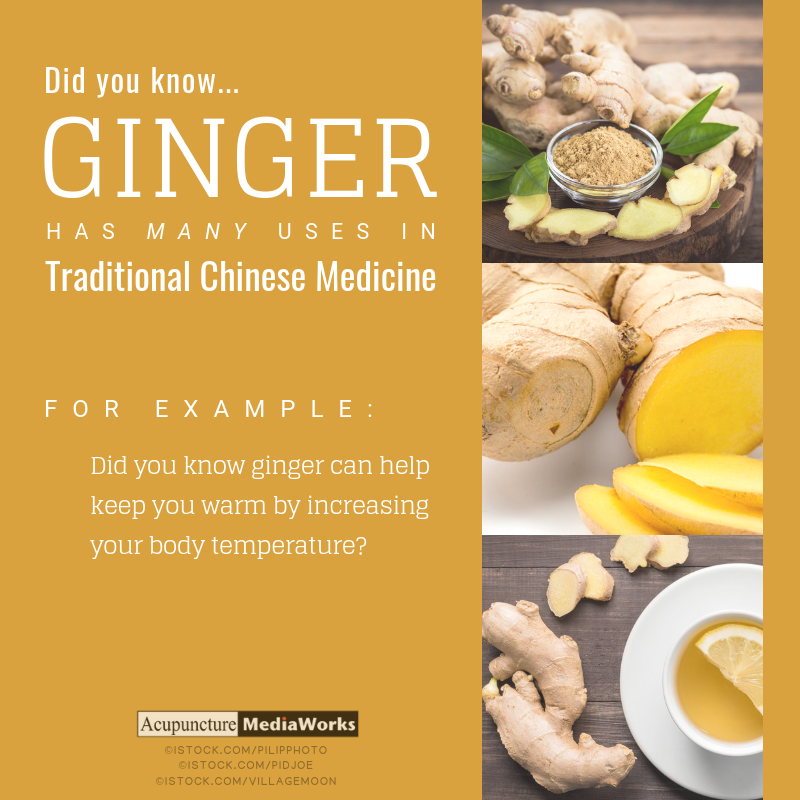 In a 2017 study published in JAMA Internal Medicine, researchers tested the efficacy of regular acupuncture treatments as a preventative measure to reduce the number of migraine headaches their subjects experienced. From a group of 249 participants, ages 18 - 65 years old, the researchers split up the participants into three groups. One group received verified acupuncture once a day for four weeks, one group received so-called “scam acupuncture” during that time and one group was told they had been placed on a waiting list and would receive free acupuncture eventually. The group that received regular true acupuncture treatments experienced a significant reduction in the number of migraines they experienced compared with members of the other two groups. Researchers also conducted follow-up interviews with all participants for 24 weeks after the treatment ended and found the frequency of migraines, the number of days people had a migraine and the intensity of the pain of those migraines were significantly lower for the group that had true acupuncture treatments than for those in each of the other groups. This study suggests acupuncture can be a powerful preventative measure for migraine headaches as well as a method of reducing the intensity of migraine pain. In Western medical circles, the jury is still out on the cause of migraines, but doctors largely agree on a few of the factors that can contribute. Many researchers and doctors believe migraines involve some kind of inflammatory response by the body. Acupuncture is often used to manage inflammation in the body. Some researchers have suggested a connection between serotonin production and migraines. Acupuncture can be used to balance serotonin production in the body, thus helping to prevent a migraine from developing. Pain, including migraines, is often connected to reduced blood circulation in the body, which can also be restored through acupuncture. To be most effective, acupuncture is often combined with herbal medicine and prescribed exercises, such as Tai Chi. Some common herbs, easily found in Western grocery stores, have also historically been used to address headaches. Ginger, peppermint, coriander seed, caffeine and rosemary all have headache-mediating properties. None of these herbs or roots are proven to prevent headaches on their own, however. If you’re curious, contact a licensed acupuncturist for a personalized prescription based on your symptoms. Overall, acupuncture and Traditional Chinese Medicine seek to address the causes of pain and migraines rather than medicating their symptoms. By reducing inflammation, balancing serotonin production and increasing blood flow, regular acupuncture can help prevent migraines and mitigate their intensity. If you or someone you know suffers from regular migraine headaches, maybe acupuncture can help them! Contact a licensed acupuncturist in your area for more information. Study: https://jamanetwork.com/journals/jamainternalmedicine/fullarticle/2603492  Whether you’re in the middle of a total diet overhaul or just looking to bring more balance and resilience into your body, this morning cleanser is one of the simplest dietary habits you can introduce, while also having a huge positive impact on your health. This lemon and ginger cleanser is full of nutritional benefits. Lemon is an alkalinizing food, meaning when the body metabolizes lemon juice (as well as other citrus fruits), it breaks it down into alkaline elements. All food, when it is metabolized in the body, it either breaks it down into acid or alkaline elements. Our bodies are normally slightly alkaline, so a diet that is too high in acid-forming foods, causing the body to become too acidic, can contribute to mucus buildup in the body. We need some mucus, but excess mucus in the body can be conducive to the growth of bacteria and viruses. Mucus buildup also contributes to congestion, which leads to many illnesses. According to traditional Chinese medicine, a diet consisting of 70 to 80 percent alkaline-forming foods will support harmony in the body, keeping the digestive and nervous systems strong. Especially first thing in the morning, when our stomachs are basically empty, it can be very beneficial to start the day with an alkaline-forming drink. Lemon also boosts immunity with vitamin C and potassium, helps keep your skin clear and aids in digestion. Adding ginger to the alkaline-forming lemon juice packs an additional punch to the drink. Ginger stimulates digestion and can help reduce nausea. It also improves circulation in the body and has been shown to reduce inflammation. One of the great things about introducing this cleanser into your daily routine is that it can be modified or tweaked to support your personal health needs. Adding cayenne to the mix will help boost your metabolism, and it works as a decongestant and a pain reliever. Turmeric can be added for powerful anti-inflammatory effects. Honey is also a great addition, simultaneously balancing out the sour taste of the lemon while adding antimicrobial, antiviral and antifungal properties to the drink. Time: 5 minutes Ingredients: 1 cup warm water ½ lemon, juiced 1 TB grated fresh ginger Optional extras: ¼ ts ground cayenne 1 TB grated fresh turmeric ½ ts raw honey To make:
There are four main types of headache: tension, cluster, sinus and migraine. And, there are varying triggers for these headaches, such as food, stress, hormones, dehydration and weather. Fortunately, eliminating the triggers and finding natural ways to prevent and help an ongoing headache are possible.
Tension: Tension headaches are the most common and are the result of impinged blood flow due to muscle tightness and contraction. Tension headaches are mild to moderate and are most commonly found behind the neck, on the forehead, behind the eyes and the top of the shoulders. Causes of tension headaches are stress, fatigue, cold, poor posture, skipping meals, and dehydration. Cluster: Cluster headaches are the most severe and commonly affect men under the age of 30. Cluster headaches are usually one-sided and are accompanied by watery eyes, a red face and affect the face where the trigeminal nerve travels. Cluster headaches last days, weeks, even months and happen the same time every day, multiple times a day. Research shows the hypothalamus is involved in these types of piercing headaches. Causes include alcohol and smoking. Sinus: Sinus headaches are from a sinus infection and feel like painful pressure around the eyes, cheeks, forehead, teeth and may have other symptoms such as post-nasal drip, congestion with green mucus or fever. The mucus is trapped in the sinuses causing inflammation, which creates the painful pressure. Migraine: Migraines are another severe type of headache. What differentiates a migraine from a tension headache is the accompanying symptoms such as visual disturbances and auras prior to onset, increased sensitivity to light, nausea and vomiting and one-sided throbbing pain. Triggers may include hormonal changes, food sensitivity, weather, iron deficiency or thyroid issues. In Traditional Chinese Medicine, the goal is to get to the root of the headache, not just treat the symptoms. There is a diagnosis and treatment plan based on a history, as well as a pulse and tongue diagnosis. Typical triggers for all types of headaches are wind, cold, heat and damp conditions either internally or externally. A wind type headache would be moving, a damp type would feel heavy, and a cold type would feel piercing and worse with cold conditions. Blood deficiency, which is a type of anemia, might also cause headaches, as the blood is not nourishing the head. Blood stagnation, which would be a severe headache, can also be a factor. After diagnosing the correct cause of the headache, a Chinese medical practitioner would apply acupuncture and offer herbs or other type of treatment to facilitate blood flow and alleviate pain. There would also be dietary advice and maybe some acupressure self-care. Some foods have been shown to help headaches. This includes coffee, B3 (niacin, found in liver), magnesium, potassium, calcium, spicy foods, ginger and watery foods. A common herb for migraines is the magnolia flower. Others include lavender, peppermint, feverfew and basil. Acupressure around the eyes, temples and in the web between the thumb and forefinger are helpful. Pressing the hollows of the neck with the thumbs can relieve the pressure, as well as visualizing hot energy flowing downward from the head and out the feet while making a “whooooooo” sound (breathlessly, as if blowing on a candle). Reducing stress is a key factor; do deep breathing exercises and take a walk where there is greenery. It is best to see a health care practitioner and not to self-diagnose or take herbs without consultation. A headache could indicate something serious.  Digestion is a complex task performed by the body. It begins in the mouth and finishes when the ingested food leaves the body through the rectum. For all we have learned over the years regarding digestion, there is still so much more we don’t know or are still learning. For example, it wasn’t until recently, the last 10 years or so, that modern medicine confirmed our gastrointestinal tract is our second brain. This discovery is drastically changing the way the body and its many functions are viewed, because everything we put in our mouths can potentially have life-altering effects on the mind, as well as the body. Digestive disorders are rampant in the United States. Surveys estimate nearly 70 million people in the United States are affected by some sort of digestive disorder. This could be anything from gallstones to acid reflux to pancreatitis. For many, these disorders are extremely debilitating. But for every person dealing with a debilitating digestive disorder, there are thousands more that just assume everything they are experiencing is “normal.” Traditional Chinese Medicine (TCM) is just one of the many ways people can deal with their digestive disorders. TCM is a very old medical system that utilizes many different modalities to treat imbalances in the body. Acupuncture is just one of the modalities that can be used. More and more studies about the effectiveness of acupuncture are being performed every day, many of which hold great promise for those who suffer from digestive issues. Acupuncture helps with digestion because it treats the person holistically, meaning all parts are considered when treatment is rendered. There is no compartmentalizing as in Western medicine. So, a person being treated by a licensed acupuncturist or TCM practitioner will not only notice changes in their digestive issues, but they may also notice changes in their psyche too. And since the mind and body are closely connected, this can be very beneficial for the patient. Studies have shown acupuncture can stimulate peristalsis in the intestinal tract. This is very helpful for people who deal with chronic constipation. In as few as one to two treatments, a person suffering from chronic constipation may find relief. Nausea and vomiting are another frequent problem associated with digestion. Acupuncture and even acupressure are wonderful tools for calming the upset stomach. One acupressure point on the underside of the forearm has been studied extensively just for this function. In most cases, the nausea and vomiting are greatly decreased or stopped altogether. Bloating is another common problem associated with the digestive tract. This can be caused by eating too much food or improper digestion. Acupuncture treatments help the digestive process of breaking down foods without the excess gas that frequently causes bloating. Diarrhea isn’t just a problem that occurs when somebody is suffering from the stomach flu. In fact, it is much more common than many people think. Acupuncture treatments can help resolve diarrhea by clearing either excess heat or excess dampness from the digestive tract, while also strengthening it. If you are curious about how acupuncture and Traditional Chinese Medicine can help you with your digestive issues, ask us! We are happy to guide you along your healing journey. |
AuthorsRebecca M H Kitzerow is a Licensed Acupuncturist practicing in La Center, Washington. With over a decade of experience she has won 10 Nattie consumer choice awards from Natural Awakenings Magazine since 2014. Archives
July 2024
Categories
All
|
Photos from Hey Paul Studios, BeGreen_Studio, Pawel Pacholec, 1950sUnlimited, toulupaliaqaz, Joelk75, OnTask, Robert Gourley, cnu_sports, Mitya Ku, wuestenigel (CC BY 2.0), FootMassagez, 401(K) 2013, Mariana Heinz, @EdwardTerry, fishhawk, liverpoolhls, torbakhopper, Boemski, dolomitibl, Driscolltheque, Dave n Laura, Vaping360, MVWorks, Life Mental Health, MVWorks, mikefats, Scot Nelson, jfl1066, wZa HK, ruurmo, Guadalupe Cervilla, Army Medicine, GViciano, torbakhopper, adrigu, Saulo Cruz, Ben Cumming, marniejoyce, kcxd, JasonCorey, kanenas.net, Live to Create Photography, gm.esthermax, Unique Hotels Group, Zenspa1, mysiana, Tobias Lindman, Leader Nancy Pelosi, Kristoffer Trolle, swanksalot, Bill Selak, Parker Knight, stimpsonjake, Gedankensprudler, SuperFantastic, tonynetone, marniejoyce, JeepersMedia, Illusive Photography, 'Ajnagraphy', Iban Torras, scotted400, gtall1, dvanzuijlekom, BPPrice, Skley, torbakhopper, Renato Ganoza, anka.albrecht, QUOI Media, Public Domain Photos, Instant Vantage, Victor Tongdee, Free Grunge Textures - www.freestock.ca, sportEX journals, Nadja Tatar, angela n., marniejoyce, MVWorks, Karolina Kabat, Thomas Fisher Rare Book Library, UofT, ginnerobot, tracilawson, haven't the slightest, My Photo Journeys, Pierre Willemin, Florena_Presse, SuperFantastic, colindunn, zzkt, TraumaAndDissociation, ER24 EMS (Pty) Ltd., shixart1985 (CC BY 2.0), marniejoyce, Tomás Fano, freestock.ca ♡ dare to share beauty, Archives New Zealand, Jaykhuang, airdrie.m, Go-tea 郭天, OnTask, wuestenigel, focusonmore.com, Disney | ABC Television Group, Andrew Gustar, Didriks, ConstructionDealMkting, charlywkarl, barnimages.com, Lel4nd, runwaypilates, michaelstephanfotografie, McLevn, TraumaAndDissociation, eLife - the journal, Lars Plougmann, wuestenigel, shixart1985, boviate, davis.steve32, kevin dooley, @the.photoguy (insta), frederic.gombert, Feathering the Nest, Victor Tondee, shixart1985, wuestenigel, Joe K Gage, kennethkonica

 RSS Feed
RSS Feed
